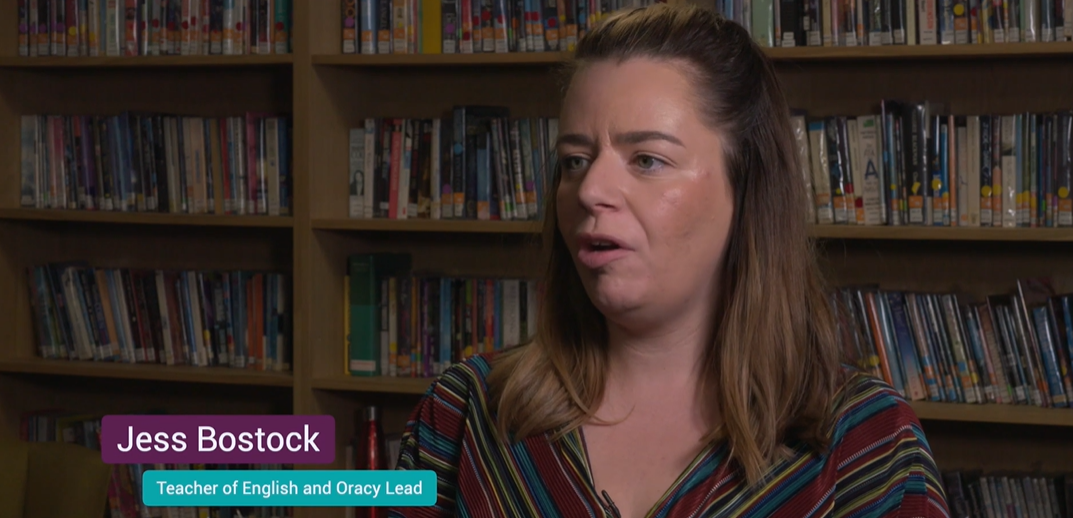Young people are feeling isolated inside and outside of school
We're hearing from schools that we work with that young people are feeling more isolated than ever before. A world dominated by screens and digital communications is having dramatic effects to students mental health and wellbeing. School is often a student's primary zone of enrichment. These feelings of isolation can impact a student's school experience with added challenges in developing the language and communication skills they need to regulate emotions and handle new situations.
In schools, educators and leaders have the difficult task of creating a culture of positive behaviour for learning while developing and nurturing young voices. Recognising and identifying language and communication needs is essential in developing a child's confidence and ability to express how they feel.
.png)
There is a strong relationship between speech, language and communication needs (SLCN) and mental health
- Research from the University of Sheffield, has shown that young people at risk of exclusion are more likely to have language difficulties.
- According to the Royal College of Speech and Language Therapists, children with speech, language and communication needs (SLCN) are at increased risk of developing mental health problems.
- Learning to agree and disagree improves conflict resolution, leading to fewer disputes in and out of school.
- Poor behaviour is often an expression of a need that a child does not have any other outlet for.
- Disruptive behaviour can stem from children who struggle to communicate their feelings and manage difficult situations on their own.
Behaviour and culture in schools transfers beyond school walls, impacting the communities that surround it. Through developing and nurturing a culture of talk, students will gain the skills and experience of meaningful and effective communication.
Our schools often report the surprising wider impact that implementing an oracy education has had on their students including, an increase in positive behaviour and wellbeing.
Through proactively teaching students what good talk in the classroom is like, we enable every child to have the language they need to de-escalate.
Fewer disputes inside and outside the classroom
At Grove Street, behaviour for learning has improved now that students are more engaged in their learning. Outside the classroom, leaders explain that there are fewer playground disputes because students are better able to articulate their feelings. An unexpected consequence of the school’s focus on oracy has been an increase in the number of safeguarding disclosures. Charlie Walsh, EYFS Curriculum Lead and Reception Teacher, explains that this is not a bad thing: “Our students feel so safe and so at home with us that they are able to tell us what they feel they need to.”
.png)
Teachers and leaders can develop the skills and expertise to identify language and communication needs that need support
There are various types of behaviour in school and through training and CPD, teachers and leaders are better equipped to recognise and identify specific needs. Through an oracy-first approach to teaching, educators have the ability to think about underlying causes of behaviour and what communication skills students require to feel supported and be better able to express their needs.
Through oracy practice and continuous support from Voice 21, teachers and leaders will get access to CPD and resources that support students and classrooms with different needs. Students in Voice 21 Oracy Schools have reported feeling more confident in speaking up, feeling heard, listened to and valued.
Teaching oracy skills explicitly is key to ensuring every child has the ability to articulate emotions, express how they feel and communicate effectively in different contexts.
"Our kids now have the words and confidence to speak about how they feel, and that’s had a huge impact on behaviour, and also engagement with learning."
- Charles Hewitt, Deputy Head Teacher.
Developing a culture of talk
High quality oracy education in schools is giving students ownership of their voice alongside the skills to manage new and potentially difficult situations. It highlights the importance of developing a culture of talk, away from screens and digital communication methods. It allows children the space to use their voice in a meaningful way and impacts their overall mental health, wellbeing, confidence and reinforces a positive behaviour for learning.
It takes a brave teacher to invite discussion into the classroom, but in doing so all students have the opportunity to be heard and listened to.
"Everyone is born with a voice, so it's our responsibility to teach them how to use it." - Jess Bostock, Teacher of English and Oracy Lead
How Voice 21 can support your oracy planning and practice
Voice 21 is the national oracy education and our mission is to to transform the learning and life chances of young people through talk. Our sustained approach weaves oracy into a school’s DNA, ensuring current and future students have access to a high-quality oracy education. This means that students in Voice 21 Oracy Schools, including those who would otherwise miss out, develop the oracy skills they need for success in school and in life.
As a Voice 21 Oracy School, we'll support you by tailoring our programmes to individual school contexts, allowing for flexibility in implementation. Our resources are adaptable to meet the specific needs and priorities of each school including, online delivery to support busy workloads.



.png?width=352&name=5%20(2).png)
.png?width=352&name=MH%20Blog%20Header%20Banner%20(1).png)
-1.png?width=352&name=12%20(2)-1.png)
Leave a Comment